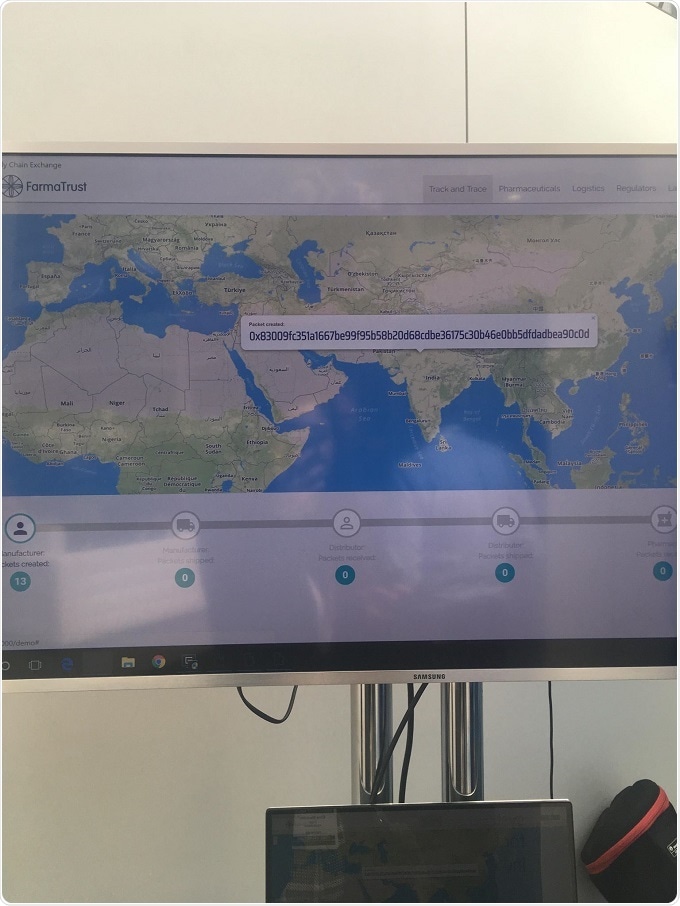Apr 19 2018
Please can you give an introduction to your company?
The company was formed in 2016 with the vision that we will have consumer apps to figure out the authenticity of the drug at a packet level. But then the vision got bigger,and bigger, because we wanted to create the track and trace supply chain solution at the global level.
Having an interconnected system was smart in the sense that it is sitting on blockchain, and we have the smart contracts to be able to create different types of reports, real time reports. So notifications to law enforcement, ADT in terms of counterfeit drugs.
The supply chain in the pharmaceutical industry is quite disconnected, and we saw an opportunity here that we could actually collect information using blockchain, because block chain is a distributed, decentralized ledger. It sits on a peer-to-peer network and so we can guarantee that data security.

What was your motivation behind creating this system?
The pharmaceutical industry is about a $1.3 trillion industry, and $200 billion is a counterfeit market. On top of that, $75 million market is online pharmacies, and 60% of the counterfeit drugs are sold through online pharmacies. So as you can tell, there are a lot of people actually on the saving lives side of our mission that, according to world health organization we were looking at before, is 100,000 to a million people die using counterfeit drugs.
What are you showing at the event?
We have live demo of our block chain application, using sample data.
What this demonstration will do is essential tell the story of a pharmaceutical manufacturing lot as it makes it way from manufacture to whole sale, distribution, and finally on to the end consumer via retail or hospitals. As we're tracking and tracing all the packets in that lot, we are building a chain of custody for each packet. We are able to use cryptographic technologies to secure a record of who has created the packet and who they're sending it to, authorizing that receiver to actually make an attestation about having received it, and so on.
By slowly building this record of this chain of custody, we're creating basically a document or a record that cannot be changed. It can then be used to make a reasonably high confidence estimation that a particular packet is genuine.
What do you hope to gain from being here?
A variety of things. We'd like to have exposure to the block chain community here in London. It's a very strong community in comparison to others in other metropolitan cities.
We're also looking for possible partners. One of the things we find in the healthcare space, where block chain is used, is that building the technology in industry is easy, but getting these different parties to come together is more difficult.
I feel like we’re going to serve the way and bring them together, because each of these parties has incentive to use the system – we just have to be sure it's not disrupting the business model in some way. Therefore, finding partners can help us devise new incentives or find new avenues of providing value to clients so that there's green ticks along stage in the supply chain.